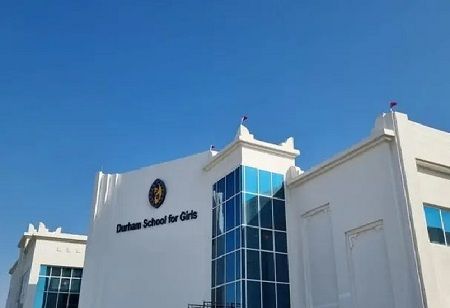International Schools Partnership (ISP), a leading global K-12 education platform, has expanded its presence in the Middle East with the addition of its tenth school in the region. Founded in 2013 by Partners Group, one of the largest firms in the global private markets industry, ISP continues to strengthen its foothold in the region.
The newest addition to ISP’s portfolio is the Durham School for Girls in Doha, Qatar. With this acquisition, ISP now operates two schools in Abu Dhabi, three in Doha, and five in Dubai, collectively educating over 14,000 students. All of these UAE-based schools are rated “Good” or “Very Good” by local regulatory bodies and have earned multiple international accreditations.
Since acquiring its first school in the Middle East in Dubai in 2016, ISP has seen significant growth in demand for high quality education. This has been driven by several tailwinds, including the rise of the Middle East as a global business hub, leading to a steady rise in families looking for private K12 education providing international curricula; favorable demographics amongst local communities; and the growth of the region’s tertiary education offering. The arrival of international tertiary education institutions means that local and international families in the region increasingly have access to a full international education solution in these markets.
ISP has capitalized on the expanding education market in the Middle East by developing greenfield schools in the region. These schools feature expansive campuses, often exceeding 250,000 sq. ft., and offer cutting-edge learning facilities, advanced technology, and robust extracurricular programs. With a proven history of enhancing learning outcomes and student experiences globally, ISP has successfully applied its expertise to improve education in its schools across Abu Dhabi, Doha, and Dubai.
Bharat Mansukhani, Divisional CEO for Middle East & Asia, ISP, says: “At ISP, we are creating a group of aspirational schools that deliver a truly international experience for its students. In the Middle East, we focus on building an inclusive environment that is conducive for our students to access opportunities in their schools and across our global platform to achieve superior learning outcomes. This aligns well with the goals of our regulators and also with parents from within local and international communities that reside in the Middle East. Our unique ‘learning first’ approach aims to develop all aspects of our students’ learning experience, with a strong focus on the individual’s academic progress, language and life skills acquisition, and participation in a host of international learning opportunities, such as the ISP Chess, ISP MUN, ISP Math, and ISP ‘I am a Scientist’ competitions. The Middle East is an exciting region for ISP as it continues to attract families from other markets and remains a top work destination for talented international teachers and leaders. We have ambitious plans to increase our footprint in our existing markets as well as other Middle East cities as we look ahead towards 20 schools”.
Suhail Albaz, Chairman Middle East, Africa, and Central Asia, Partners Group, says, “We are incredibly proud of ISPs’ growth both globally and in the Middle East. Its development is a prime example of our transformational investing approach, where we identified a thematic growth area and subsequently built a leading business through a combination of acquisitions and organic growth. In the Middle East, ISP’s ‘learning first’ philosophy and inclusive environment fits closely with regional education requirements”.
Under Mansukhani's leadership, ISP employs over 1,800 individuals in the Middle East, including educators and operations staff, with its regional headquarters in Dubai. ISP operates 98 schools across 24 countries, serving more than 95,000 students worldwide.

